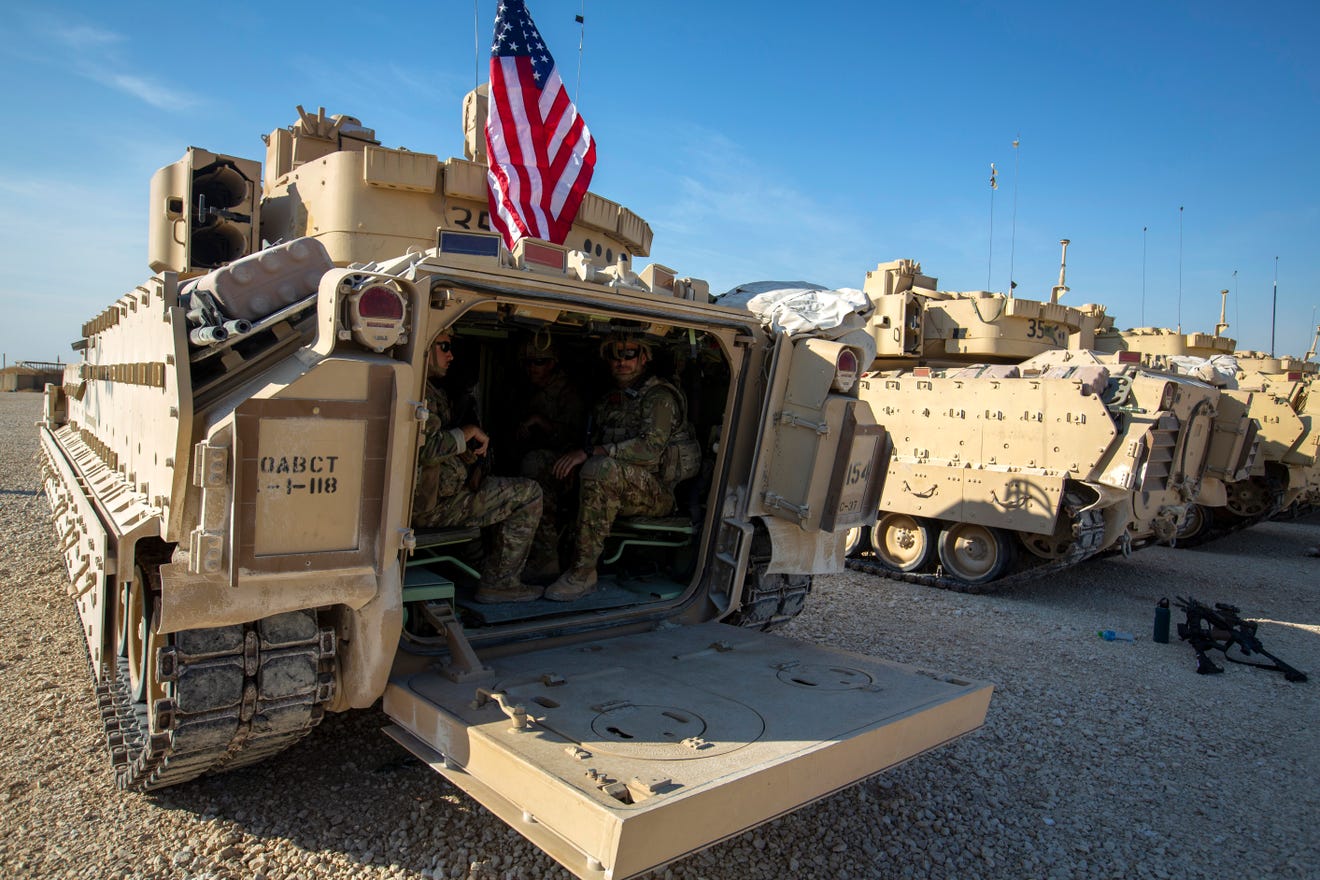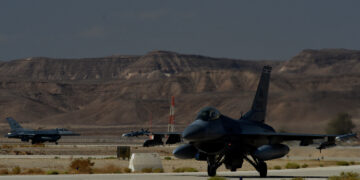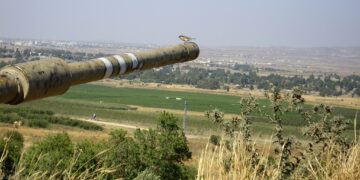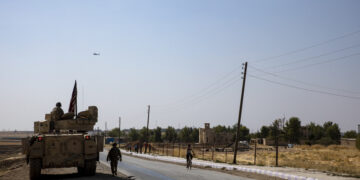May 4, 2024
Biden’s Middle East posture courts insanity and endangers U.S. troops
By Michael DiMino and Daniel DePetris

The crisis in the Middle East remains one step from major escalation. In the aftermath of Iran’s unprecedented attack on Israel, many pundits rushed to celebrate, claiming that Iran’s “maximum effort” had been easily swatted away. Those celebrations were understandable; according to the Israel Defense Forces (IDF), 99 percent of Iran’s drones, cruise missiles, and ballistic missiles were intercepted—primarily by U.S. air defenses—or fell short of their intended targets. The structural damage in Israel was light, and just one person was injured. Iranian leaders then aggressively downplayed Israel’s retaliation against an air defense battery in Isfahan a week later, giving hope to the region—and the wider world—that further escalation might be avoided.
But it would be unwise to walk away from recent events with a false sense of security. While Tel Aviv and Tehran appear to have opted to bring things back down to a low boil, this could prove—as it often has in the past—to be a short-term aberration. The decades-long shadow war between these two regional adversaries is likely to continue, which means the region and the roughly 40,000 U.S. troops stationed there remain one wrong move away from disaster.
First, it’s important to point out just how close Israel and Iran got to full-fledged hostilities. While Israeli military action against Iranian targets in Syria is not unusual—hundreds of Israeli airstrikes have occurred there over the last decade—never before had Israel targeted an Iranian consular annex, let alone in broad daylight. Iran simply couldn’t allow such an overtly provocative attack to go unanswered. To the Iranians, doing so would have only incentivized the Israelis to conduct similar high-profile strikes in the future.
Tehran, for its part, was faced with conflicting priorities: how to retaliate forcefully, but in a way that would not provoke a full-scale conflict with a superior adversary. Notwithstanding commentators who labeled Iran’s barrage “potentially catastrophic,” it isn’t clear that Iran ever intended to deal a crippling blow. Given the telegraphing from Tehran days before the attack, diplomatic backchanneling, and the ample intelligence collected beforehand, it’s far more likely the Islamic Republic was aiming for a “goldilocks” response meant to send a strong signal to Israel while preserving off-ramps for de-escalation.
Events on Grand strategy










